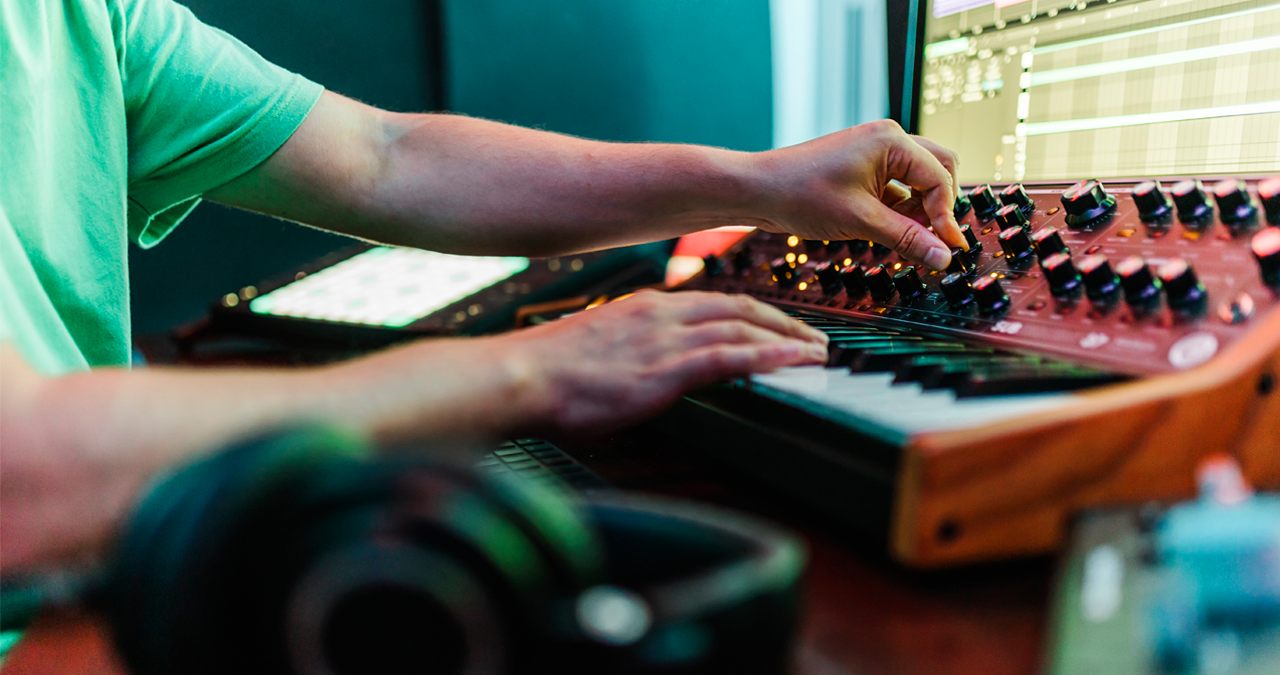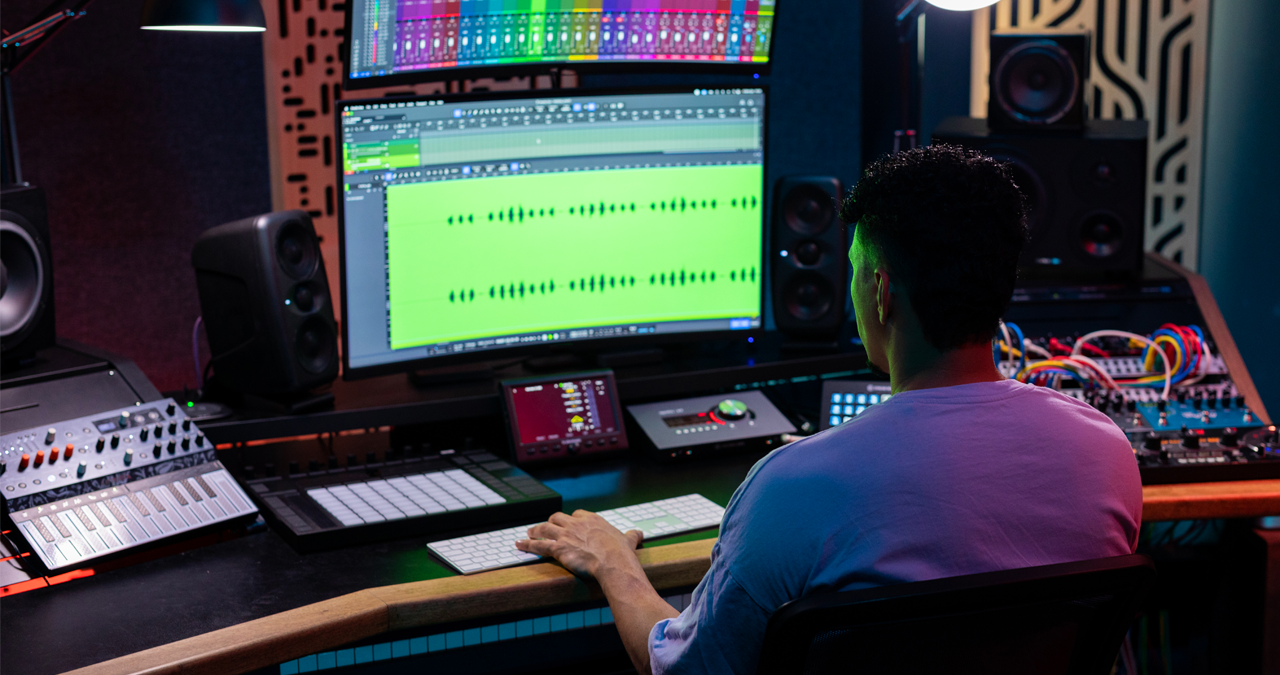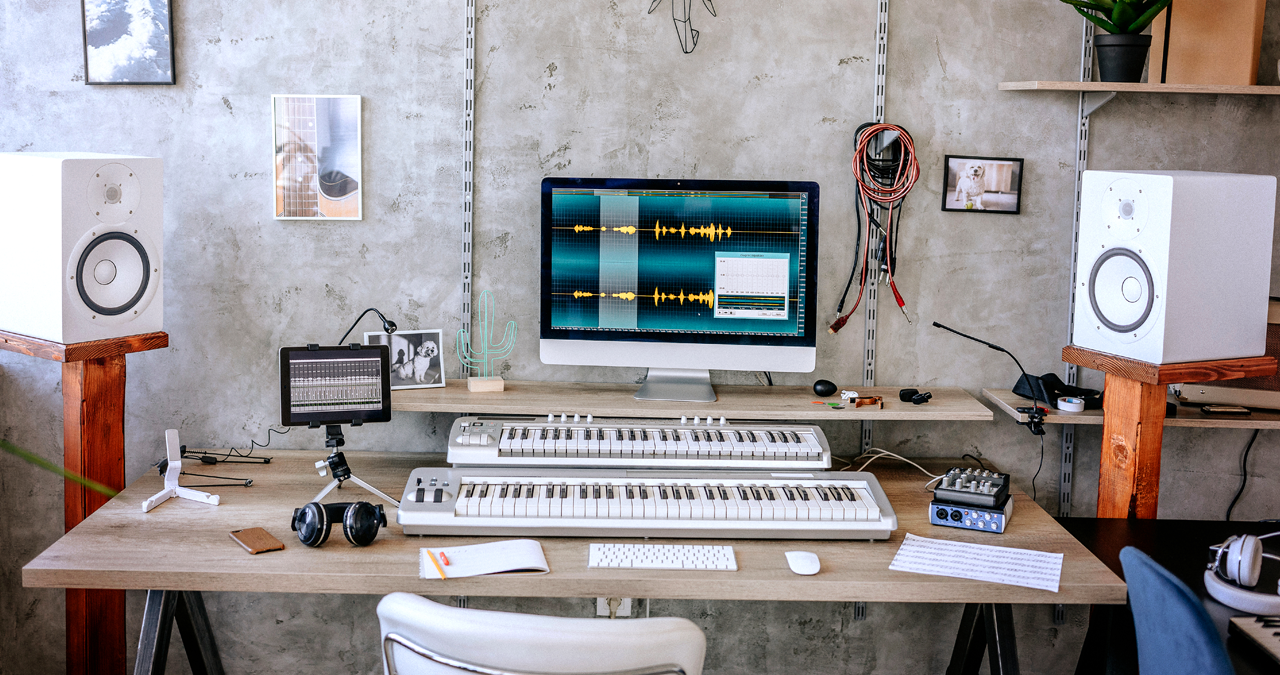If you’re struggling creatively, don’t make owning that $2,000 synth your primary objective: Why tech isn’t to blame for your lack of inspiration
Our journey through the 100 things that all music-makers should know continues with a reminder that expensive gear won’t instantly make you a better music-maker

Want all the hottest music and gear news, reviews, deals, features and more, direct to your inbox? Sign up here.
You are now subscribed
Your newsletter sign-up was successful
There’s a regularly uttered old saying that it's a poor workman who blames their tools. In the world of music production the sin of outsourcing responsibility for a shoddy job manifests itself in another form - and can often limit music-makers from even attempting the ideas swimming around their heads.
Rather than being a ‘workman’ blaming their tools for inadequate results, many music creators labour under the belief that without a certain calibre of respectable tech, it’s nigh-on impossible to even start trying to make any releasable music.
Similarly, there's those that when facing a creative drought, blame the inefficiencies of their synths or DAWs, and start putting money aside for a pricey replacement…
The idea that tech is core to the creative impulse is damaging to our psyches for quite a few reasons. We’re keen to dispel it early in this next part of our ongoing series, which is highlighting the 100 things that all music-makers should know in 2025.
But before we do that though, let’s make a few things clear;
While there’s absolutely a craft, skill and experience-level that goes into the music production process, the music-making process is largely driven by ideas.
It’s that tune you can't shake from your head, it’s a soul-lifting melody you accidentally stumbled upon after hours of trial-and-error noodling with your keyboard or guitar, or it’s those mixed, chaotic feelings following a relationship’s end that you just need to express somehow.
What makes any of these starting ideas worthy enough to be worth pursuing is much harder to justify on a technical level.
Want all the hottest music and gear news, reviews, deals, features and more, direct to your inbox? Sign up here.
The second thing we want to stress is that the desire to own gear and tech - and fill out your music-making space, building an arsenal of creative tools - is by no means a bad thing.
If you've got the budget for it…
It almost goes without saying that owning better gear can be beneficial to your process and workflow. No question.
But - and it's a big but - that same gear isn’t going to give you motivation to express your ideas.
Neither is the lack of having it the thing that's preventing you from making a masterpiece.
Here in 2025, there are countless affordable (and even free) methods of capturing, mixing and even releasing your music which mean that the extent of your creative ambitions is no longer limited by gear-envy or insecurity
Lesson #2: Music technology is fantastic - but it won't make you a better music-maker. That can only come from within.
This lesson is something that this writer can personally attest to, and is something I’ve been realising more and more over the last few years.
Back in the late 2000s, when I was still finding my feet as a music-maker, I felt a bit hamstrung by a lack of professional tech - even though I was writing new music every single day.
Though I'm sure that the younger me would envy the amount of gear and tech now at my disposal, it's that prolific drive to make new music daily that I look back at with envious eyes. It's something far more fundamental.
At that point, my own bedroom-production setup consisted of an 8-track Tascam Portastudio, a copy of Acoustica Mixcraft, a few guitars and a very flimsy keyboard.
With this minimal kit, I dove headlong into making a series of naively grandiose concept albums. As you do when you’re 21 and don’t know any better…
It was a creatively prolific couple of years, but my own insecurity around the fact that the stuff wasn’t recorded ‘professionally’ prevented my from really pushing it. I was content to play it just to my closest (and least judgemental) friends.

The fear of ridicule loomed large, and there was also the assumption that this music itself would be superseded by better-written tracks.
Now, well over a decade on from this era, and at a bit of a creative impasse, I found myself returning to many of the tracks written during this timeframe.
Listening back with a more astute critical ear, I think it’s fair to say that lots of it was pretty lacking - and swathes of it was just frankly bizarre and experimental.
But some of it had a purity and authenticity that I’d been unable to replicate in subsequent years, when I’d been leaning hard on my gear and DAW-based production principles.
With some of those more solid ideas, I took to the task of re-recording and re-arranging some of it with a wider array of tech and instrumentation.
Partly, this recent re-recording process has been fuelled by a sense of regret for not putting it out there at the time, but also a slightly envious realisation that the giddy excitement of recording every day - even if I’d never intended to release it - was motivated by something more instinctive than just getting the best from my tech (as I didn’t have any!).
To wrap-up to the point of this slightly self-indulgent trip down memory lane, this process has served as a reminder of what it really feels like to be driven to create music.
Tying that motivation together with increased access to gear and tech (and greater clarity on music theory and songwriting) can yield stronger results - but it’s a balance struck between nurturing two distinct mindsets;
The passion to want to make music and learning to use gear and tech to get the best from it for your track are both vital.
But also, in today’s music landscape - with the dissipation of the central spine of music monoculture - we can feel more free to write, produce and experiment without the fear or being sniggered at by ‘proper’ music-makers.
Of course, you need to bear in mind the listener's experience, and realise that ultra lo-fi or half-finished recordings will be less appealing than sparkling, punchy mixes.
With passion-led ecosystems like Soundcloud and Bandcamp, we can more easily connect with subsets of people who'll respond to your particular music - or developing ideas - in a far more straightforward, constructive and helpful way than the traditional methods of gaining acceptance from the gatekeepers.
Striking a balance between creatively-motivated music-making and writing for a wide audience is important if you want ongoing, sustained success as a music-maker, and something we’ll return to. It’s also something we’ve touched on in our first lesson.
But this second lesson strikes at the heart of many lapsed music-makers’ mindsets. It’s something I’d forgotten too.
If you’re struggling creatively, don’t look to your gear as the problem - and don’t make owning that $2,000 synth your primary objective. It's not a fix.
As noted tech-skeptic Rick Rubin has noted in his book The Creative Act: A Way of Being - the quest for perfection (whether it be hours spent on a mix, or harnessing ultra-expensive technology) can often destroy the very motivation to create;
“The urge for perfection is overwhelming. It's too much. We are frozen, and sometimes ends up convincing ourselves that discarding the entire work is the only way to move forward.”
Perhaps the best solution then, when encountering a creative drought, is to spend time AWAY from your studio.
Don’t sit down to write music facing a blank DAW project or with your instrument in hand.

Go for a walk, listen to other music that moves you, read a book, talk to your friends, reflect on past experiences and get into a mental zone which facilities the generation of ideas.
Then come back to your studio filled-up with thematic or musical starting points.
You’ll find that your tools are more than happy to help make it a reality.

I'm Andy, the Music-Making Ed here at MusicRadar. My work explores both the inner-workings of how music is made, and frequently digs into the history and development of popular music.
Previously the editor of Computer Music, my career has included editing MusicTech magazine and website and writing about music-making and listening for titles such as NME, Classic Pop, Audio Media International, Guitar.com and Uncut.
When I'm not writing about music, I'm making it. I release tracks under the name ALP.
You must confirm your public display name before commenting
Please logout and then login again, you will then be prompted to enter your display name.